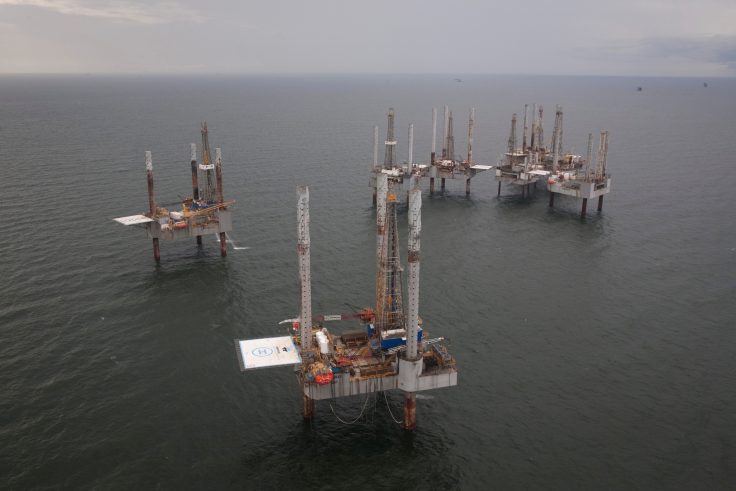Drilling in the Gulf of America could help disentangle the U.S. economy from foreign oil

The Trump administration announced a Gulf of America oil and gas lease sale that would span roughly 80 million acres, an area that is larger than the United Kingdom.
The behemoth lease sale, which will be the first offshore lease sale since President Donald Trump took office, is scheduled for December 2025 and will offer 15,000 blocks of federal waters across the entire gulf. Companies with winning bids will be subject to a reduced royalty rate, something that could potentially drive greater industry interest and participation in the sale, according to the Department of the Interior (DOI).
It is the latest action the Trump administration has taken in pursuit of its aggressive energy dominance and “drill, baby, drill” agenda. The announcement also represents a U-turn from the Biden administration’s approach to drilling, which involved shutting down oil production, canceling offshore lease sales, and hiking royalty fees for producers.
And it comes days after Trump ordered his administration to quickly ramp up oil drilling. “To the Department of Energy: DRILL, BABY, DRILL!!! And I mean NOW!!!” he wrote in a post on Monday.
Trump issued that directive after he ordered the bombing of three nuclear sites in Iran, one of the world’s largest oil producers. A disruption to Iran’s oil flow would have upward pressure on energy prices everywhere. Following the successful U.S. bombing operation, Iran threatened to conduct a blockade of the Strait of Hormuz, a critical passageway where 20 percent of the global supply of petroleum is transported every day.
Continued leasing and drilling in the Gulf of America could help disentangle the U.S. economy from foreign oil. The gulf already produces about 1.8 million barrels of oil per day, or 13 percent of the nation’s total production, but contains an estimated 48 billion barrels of recoverable oil, according to the Bureau of Ocean Energy Management (BOEM).
The United States still imports about 7.5 million barrels of oil and petroleum per day, though it remains a net exporter.
“Energy independence is a cornerstone of U.S. economic strength, national security and global stability, boosting American energy dominance and reducing reliance on unstable foreign producers,” the BOEM said in a statement. “By continuing to expand offshore capabilities, the United States ensures affordable energy for consumers, strengthens domestic industry and reinforces its role as an energy superpower.”
During the Biden administration, the DOI canceled various offshore oil lease sales and issued the most restrictive offshore lease sale plan in American history (the federal government is required by law to issue such plans every five years). The Biden DOI also hiked royalty rates for offshore oil producers despite acknowledging that doing so would threaten energy security.
“Today’s announcement marks another step in a new path forward for safe and responsible U.S. offshore development after years of roadblocks that hampered energy investment in the Gulf of America,” American Petroleum Institute’s senior vice president of policy, economics, and regulatory affairs Dustin Meyer said in a statement Wednesday.
“It underscores the vital role the Gulf of America plays in providing affordable, reliable energy, supporting hundreds of thousands of good-paying jobs, and reinforcing our national security,” added Erik Milito, president of the National Ocean Industries Association, an industry group that represents offshore energy developers.

















